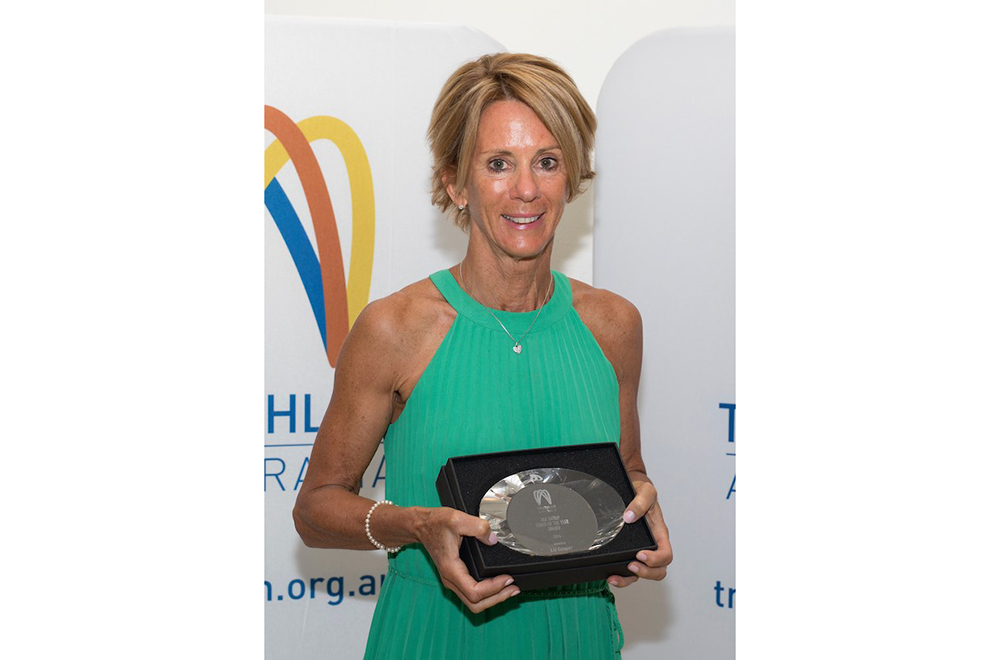Winners of the Victorian Sport Awards that celebrate participants, organisers, initiatives and volunteers behind the scenes from all levels of sport in the state, will be announced on June 3.
The awards, to be held at the Marvel Stadium, will acknowledge the fun, inclusive and innovative activities that individuals and clubs undertook during lockdown to remain connected with their clubs and community while also celebrating the state’s return to the playing field.
Finalists include:
Elizabeth Gosper, pictured, head coach of Inclusive Sports Training, an Australian-first triathlon club for people with intellectual disability. She coaches 90+ athletes and pivoted her sessions online during Covid-19. Her partnership with Triathlon Victoria culminated with the intellectual impairment category being added to the 2020 Australian Triathlon National Championships.
Ayden Shaw, sport and recreation manager at Disability Sport & Recreation (DSR), who has been driving change to create better access to community activity for people with disability, promoting Wheelchair Rugby Victoria, setting up a partnership with Proud 2 Play to broaden the experience for those with disability who identify as LGBTQI+ and created ‘DSR Kids Online Active’, transitioning the DSR Kids Hospital program online.
Yvonne Snell and Sarah Wheadon from Special Olympics Australia, the peak body for developing and delivering inclusive sport and physical activity for people with intellectual disability, held a six-part webinar series in 2020. Presenters included people with lived experience of autism, teachers who support young people with autism, researchers and inclusive sports program providers. With 2129 participants, including organisations not wholly connected to sport, it gained an understanding of how important inclusion and education is to the sector.
VicHealth Active Recreation Initiative of the Year for FitSkills – LaTrobe University, a 12-week community-based program addressing the lack of social support and inclusive programs for people with disability aged 13-30. Participation was facilitated at 20 community gyms where a young person with disability was matched with a student mentor from the same locality to exercise together. Adaptations of the program enabled 27 young people with more complex disabilities to also take part. Participants stated they felt confident and capable after the sessions and those feelings extended to home and work activities while also providing the impetus to pursue exercise beyond the program.
For more details visit: https://vicsport.com.au/2020-awards

